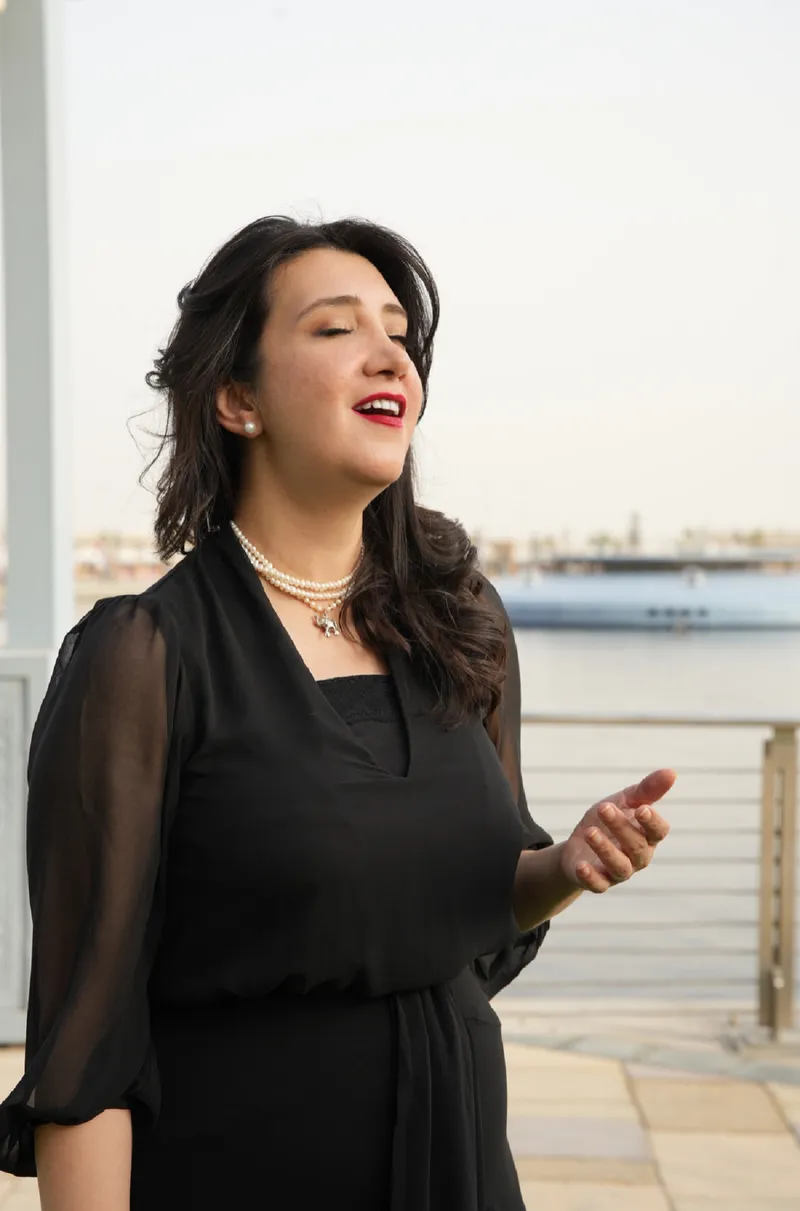Popularity of a musician is equated with the quality of their work, and I feel stifled by this, says singer Zeb Bangash
Singer-composer Zeb Bangash is not comfortable being a diluted version of herself and does not wish to box herself in others’ expectations of what she should and should not be.
The 2014 Bollywood film Highway is a memorable one for many reasons–the unconventional road trip was a first for filmmaker Imtiaz Ali, it redefined actor Alia Bhatt’s career, and it introduced the Indian audience to a voice that was hauntingly beautiful.
Zebunnisa Bangash or Zeb Bangash, along with Bhatt, voiced AR Rahman’s composition Sooha Saha, a song that continues to touch a chord, even almost a decade after its release.
While Sooha Saha continues to be special, the South Asian singer, composer, and song-writer has delivered other soulful numbers as well–the most noteworthy ones being Ajnabi (Madras Cafe), Hone Do Batiyaan and Haminastu (Fitoor), Le li Jaan (Lipstick Under My Burkha), and, more recently, Roshe–a rendition of a Kashmiri classic.
Last month, Bangash became the first Pakistani woman to perform in New York’s iconic Times Square. She is currently working with GRAMMY-winning producer Ian Brennan on a documentary recording of her master, Ustaad Naseeruddin Saami.

In October this year, Zeb Bangash became the first Pakistani woman to perform in New York’s iconic Times Square.
In a candid chat with YS Life, Bangash talks about her inspiration, being a woman artist, and overcoming the fear of the digital realm.
Edited excerpts from the interview:
YS Life [YSL]: Looking back, when did you know that you wanted to pursue music as a career?
Zeb Bangash [ZB]: I’ve always loved music and have been surrounded by singing and music all my life. But I never thought I would be a professional musician. Although I did flirt with the idea in a childhood-fantasy kind of way often, I did not consider it a career or work towards finding a professional outlet for it.
The funny thing is that music kept happening in my life–from singing at school and college for friends to making songs with my cousin (Haniya Aslam) and then recording them. It all kept coming together almost on its own.
The only thought in my mind, while all this was happening, was that I love this. It wasn’t until a year after Coke Studio that I realised that this could be my path and that I should pursue it seriously. So I quit my job and focused on music.

Zeb Bangash
YSL: How would you define your music style?
ZB: I can sing certain styles better than others but a part of me doesn’t really want to define anything yet. I know that I have an instrument which I’m developing, and I also know that I am attracted to many different kinds of sounds, traditions, and musical expressions.
I’m scared that if I define myself it’ll limit me. I think I would like to keep discovering my style and would like to delay defining it for as long as I can (smiles).
YSL: You have been redefining folk and classical music. What has been your inspiration over the years?
ZB: I grew up in a household that gave me multicultural exposure to music–ghazals, Bollywood, semi-classical , Turkish pop, Turkish classical, Iranian, Afghan, and, of course, a lot of music from the Western classical and pop traditions. Some of these languages I understood, and some I didn’t, but I learnt earlier on that it doesn’t matter. Nowadays people want to know what’s being said (lyrically) in the song, but music is whatever one makes of it.
Throughout my career, I’ve been drawn to music from other cultures–both the similarities and the differences (in music from other cultures) surprise me. Music in itself is the inspiration.
YSL: What’s your thought process when working on a new project? How do you decide what’s going to work with your listeners? Or do you just follow your instincts?
ZB: I always follow my instincts and do what feels right.
I don’t think that I’ve had the same process for any two projects. I’m very collaborative, and if I get energised or deflated by the company, or if the collaboration isn’t doing anything for me, I try to find inspiration elsewhere–like the music–so that I can bring myself to the project wholeheartedly.
YSL: In an earlier interview, you said that it is not easy being a woman artist. Was the journey as a woman artist difficult for you?
ZB: I meant that from the perspective that music is hyper-marketed in these times. The popularity of a musician is seen as equal to the quality of their work. As a woman, that pressure is higher, and you feel like you are pushed to alter everything to get those pop brownie points–your clothes, your body, your interests, and, most importantly, your social life, and ultimately your musical expression. I felt stifled by that.
I was the Pathan singer at home, a Pakistani in India, and a Muslim girl abroad. That brought a romanticism or a prejudice (mostly a mixture of both) and also expectations of what I should and shouldn’t be. But the conversation rarely progressed to my music. That was hurtful and anxiety-inducing at first. I didn’t know what to do with it. To own it is to box yourself, to fight it is to become angry and a fighter. I wasn’t too sold on being either.
Soon after though I found my Ustaad and that changed the game. A couple years into my practice, none of this mattered because I became very centered around myself and my own voice. And I also had faith that what is meant for me will happen. When it does, I have to be all present for it, I can’t be a diluted version of myself.
YSL: Could you shed some light on the current state of the music industry? Do you think independent music will make a comeback? Also, what are your thoughts on band culture?
ZB: Honestly, I’m not the best person to answer this question because, like I said, so much of this work is now done digitally and I am not an expert.
Ten years ago, it was an open space for everyone to participate in. I don’t find it to be as open as it claims to be anymore. For instance, on most musical platforms, we see geo-fencing, sponsorships, and paying money to be more visible. These kinds of interventions can alter your audience, and very few get a good chance digitally. Seriously, I don’t really have a grasp on it. Maybe you can tell me something? (laughs)
YSL: In another interview, you spoke about finding the digital realm intimidating. Have you overcome that fear? How are you using digital platforms to interact with your audience?
ZB: Somewhat ... I may be comfortable in sharing a bit more. I could be doing a lot more in terms of sharing my music though. I still don’t understand how to extricate myself from the moment while doing music and going into sharing (on social media) mode. It’s overwhelming!
The one thing that I am moved by is the immediate connection to my listeners. That makes it all worth it. I think I’m getting more and more convinced that my platform will probably never be for marketing, it will be for communicating with those people out there who want to connect to me. That’s how I’ve gotten interested in it.

YSL: In an era of reels and short videos, how can a music artist stay relevant? Do you approve of the idea of making music that makes it big on reels?
ZB: I approve! If it sounds and looks good, sure. I’m not very good at them though! But if these reels end up pushing the music, then why not? In South Asia, movies and dramas are also large reels that promote music. Music videos haven’t really done well largely on their own, barring a few exceptions, of course.
YSL: What’s in store for you and your listeners?
ZB: Fingers crossed, there should be quite a bit coming out soon. I finished my solo album in LA earlier this year, and I’m almost done working on the second. I’m so proud of these two albums because of the collaborations, the process, and, most importantly, the music that came out of it. I can’t wait for everyone to hear it. There is another really special regional collaboration that I’m doing closer to home, which has been a life-long dream.
These are still in process but hopefully we will wrap them up within the year. So, lots of music is coming up!
Edited by Swetha Kannan







